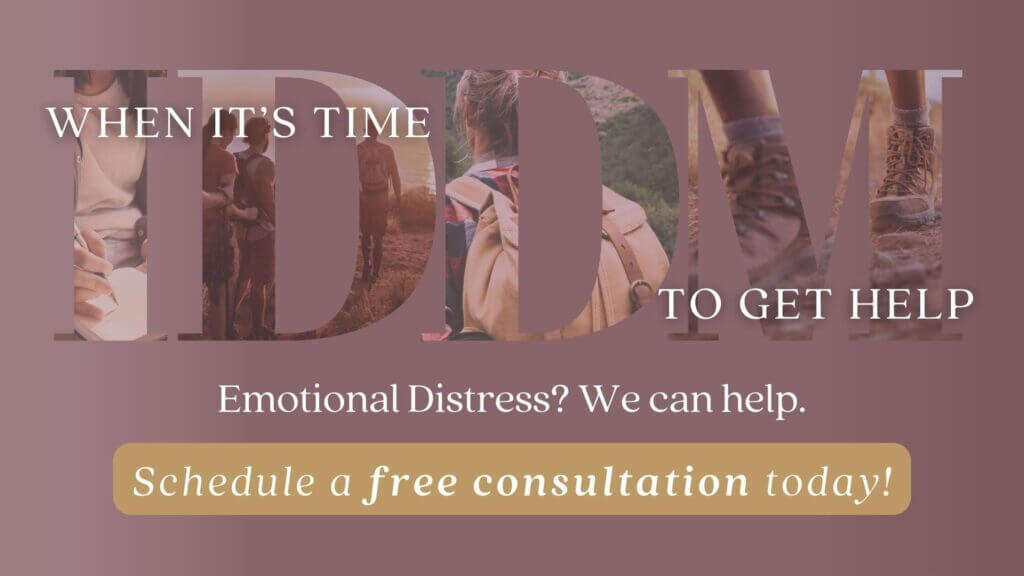
Healing during crisis can feel difficult. Maureen O’Connell reflects on her own experiences and how we can keep ourselves on a path towards healing.
Reflection on a time of crisis in the Church
~Psalm 63~
I’ve been sick for about two months. Really sick. A few times I thought I was getting better then got worse! Perhaps the hardest part has been that almost everyone around me has been sick too. I feel like I’ve been living in a field hospital where everyone is sick–including the doctors.
I’m a Catholic who cares deeply about our Church and its members, the Body of Christ and am hurting alongside those who have suffered abuse by “wolves in sheep clothing.” This “summer of shame” has brought about intense reactions of mind, body, and spirit from everyone I talk to. In case you thought you were overreacting to recent news in our Church, I’m pretty certain you are having a normal reaction.
If you have been following everything and reading news stories, blog articles, Facebook posts and threads, you should be having an emotional reaction. Let me assure you this is normal! Even us therapists are struggling right now.
Over the past few weeks, I have been reading lots of commentaries and listening to homilies. I think there are some really courageous and inspiring things being said. Great ideas about what we can do—it is time to activate. Courageous homilies from priests willing to speak the truth about what is really going on.
Catholic bloggers sharing practical ways to grow in our own personal holiness with more prayer and fasting. This is all so needed and I’m learning much. Below I have included links to things I’ve found particularly helpful.
I want to share some of my own reaction, mainly from the perspective of a Catholic therapist with CatholicPsych and build off the great work Dr. Greg laid out in his recent blog post series on the Church crisis.
It is my hope and prayer that what I have to say will provide affirmation and guidance. Affirmation for those reeling in pain—you should be reeling. Totally normal. I’ll also talk about abnormal reactions. Guidance for mental health coping so as not to get sucked into the existing whirlpool or waves yet to come.
Naming and facing pain in time of crisis
“White, hot, crucible of rot.”
It is good to name things for what they are and fully face reality. That’s how we start to heal during a crisis. Without naming and facing pain for what it is, suffering and disorder occur and mental health starts to break down. Like classic denial.
So too with what is going on in our Church and the reaction among pretty much all Catholics. Those of us who have been following revelations in recent weeks of what Fr. Lankeit of the Diocese of Phoenix termed the “white, hot, crucible of rot” have been through a “collective trauma experience.” We are reacting to trauma, which l will define as a stressor that would be markedly distressing to almost anyone … and is outside the range of usual human experience.
This has been truly traumatic, especially for anyone who has been abused at the hands of priests. As Fr. Lankeit so eloquently said, “they have had their terror reawakened and wounds reopened by the revelations of diabolical clerical sexual abuse and episcopal coverup” (Very Rev. Fr. John Lankeit, Rector of Ss. Simon and Jude Cathedral, Phoenix, AZ, homily August 19, 2018, available on YouTube).
After a trauma experience it is common to feel shock, anxiety, insecurity, and the range of grief emotions, most commonly sadness and anger. This is all a normal human response to trauma and we don’t choose it. Grief unfolds as naturally as waves in the ocean. In the same way we can’t stop a wave, there’s no stopping grief.
When working with someone in therapy who is grieving, I use these analogies and like to encourage them to “ride the wave.” So too, now, I encourage you to acknowledge your own emotional reactions, accept them and don’t try to fight them.
For me, learning the layers all this news was sort of like learning my Dad has metastatic cancer and it’s spread everywhere. But really that analogy does not satisfy. No, my emotional reaction was more like learning the ultimate betrayal—that my husband not only had an affair that spanned seventy years but went to great lengths to cover it up.
Oh the grief! Grief for those abused and wounded and for the deep cancer infecting leaders who are entrusted with the care of our souls. And then recently another wave–allegations against the Pope himself. What?! Holy Father, your flock is hurting. Personally, I need my Spiritual Father perhaps now more than ever.
Coping strategies for trauma or crisis

We CPI Catholic therapists spend a lot of time thinking and talking about what in psychology is called a “secure base.” Our secure base is crucial and first comes from the quality of relationship with our parents.
In order to trust other people and sustain relationships, it is crucial to have a secure base where we can go when we are upset, need help or comfort. As we go through life our need for secure bases does not go away.
Our ultimate secure base is God. Our ability to have and maintain secure bases in human relationships is intimately connected to our ability to trust God. And when we do not have secure bases our mental, emotional, and spiritual health suffers.
It is important to acknowledge our sense of security in the Church Hierarchy has been rocked. For me this has been a good reminder that Jesus is the Church.
My trust is in Jesus alone.
Trust needs to be rebuilt. That will take years if not decades and might not happen in my lifetime. Facing that truth alone brings up so many difficult emotions. I seek to live in the Truth. It is painful to face this reality.
The Truth Shall Set Us Free.
As painful as it has been to watch the “white, hot, crucible of rot” come to light, it is right and just. For there is nothing hidden that will not become visible, and nothing secret that will not be known and come to light (Luke 8:17).
Sin and disorder thrive in darkness. To the extent that something is hidden either in the Church or within ourselves, it has power over us and we are not free. It is time to bring all the rot out into the light. Every last bit. Personally, I want to see investigations in every Diocese. Around the world.
I think what Fr. Altier of the Diocese of St. Paul – Minnesota, said in a recent homily is so powerful and true, I am want to quote a large portion of it here:
“It’s about time it’s coming out, as sad as this is we need to recognize it is actually something very good…it is the purification of the Church. And that is going to lead ultimately to her crucifixion…our Lady’s work has finally begun. Praise God.
She gave the Bishops sixteen years to clean up this mess. And they did nothing. Now we’re hearing the same thing we heard in 2002….nonsense, we need action…remember that our faith is not in priests, or the Bishops, Cardinals, or even the Pope. Our faith is in Jesus Christ… He is the one who promised the jaws of Hell would not prevail against her. What we’re going through, what we’re just beginning is like a Mom with a teenage kid.
The Mom has told the kid: clean your room, clean your room, clean your room, and they didn’t do it. Finally, Mom gets tired, grabs a garbage bag, and heads towards the room. The kid panics but it’s too late, there’s no stopping Mom and the kid despairs thinking Mom’s going to throw everything away. When it’s all done the kid is actually really happy, the room is immaculate. That’s what’s going to happen.”
What’s normal?
You might be feeling hopeless like there is nothing you can do or thinking, “this is just the beginning and there’s no end in sight.” Maybe true. If so, it is even more crucial to read on and ask yourself how you can take care of yourself during this time of decreased security and trauma in a place we once thought safe.
You do not have to directly experience the abuse mentioned in the reports to be affected by the abuse. I encourage you to monitor your internal response and ability to handle specific details.
Especially if you have a history of abuse in your past. It is not necessary to read or listen to details. This will vary by person and it might be necessary to decrease attention and time immersed in all of this. Including news stories and social media sights.
The effect of this “collective trauma experience” varies by person and depends on a few factors. One is the level of exposure to the event. Some have been watching from afar and just reading headlines or scanning articles. Some have been reading news stories, interviews, Facebook posts, but steering clear of detailed reports.
Others have been immersed and even read the detailed Grand Jury Report. Most people are having the normal reaction to trauma mentioned above– shock, anger, and grief. Maybe you are not feeling the same as me, you might be feeling numb or detached since this feels like “old news”, nothing new under the sun.
Numbness is a common reaction to trauma. This does not mean you cannot heal during or following crisis. These sorts of feelings should last a week or two. Those with a history of abuse will most likely have a more intense reaction, lasting longer.
Abnormal response and PTSD
I would like to offer a word of caution to those reading the details of the reports. Please be careful. Repeated exposure to trauma, even “from afar” can have detrimental effects on your mental health and can develop into PTSD.
If you are concerned you or a loved one is experiencing an abnormal response, I have included the diagnostic criteria for PTSD” (Post Traumatic Stress Disorder) to help clarify normal vs. abnormal. Severe reactions to experiencing or witnessing trauma can cause a mental health disorder known as “PTSD” (Post Traumatic Stress Disorder).
The Mayo Clinic defines PTSD as “a mental health condition that’s triggered by a terrifying event — either experiencing it or witnessing it. Symptoms may include flashbacks, nightmares and severe anxiety, as well as uncontrollable thoughts about the event.
After experiencing a trauma, it is normal to have some or all of these symptoms. We do not call this a disorder. If these symptoms persist for more than a month, it is time to seek professional help.
If your symptoms last a month or longer and impact different areas of life such as work and relationships, I urge you to seek help. You can start by contacting CatholicPsych, your Primary Care Doctor or obtain a referral from a trusted friend or priest.
Mental health support

How can we cope?
Find security in Jesus.
Our need for a secure base and security will never go away—until heaven. In these times, I believe this is an opportunity for even greater abandonment and trust in God. In talking with friends and listening to priests and trusted Catholic commentators, the common theme is a challenge to grow even closer to Christ.
A call to radical prayer and abandonment to God. Fr, Alatier mentioned above says what we need to do is “endure, pray, fast, take the faith seriously, study the faith, and stay near Our Lady at the foot of the cross. Christ had his passion and the Body of Christ must have it too.”
Go deeper in prayer.
For me, I am finding more union with Christ through Morning Prayer in the Liturgy of the Hours – the prayer of the Church. Several months ago my spiritual director gave me a few psalms for meditation, one being Psalm 69.
The other day I had a powerful prayer experience during Morning Prayer with Psalm 69 again. These words took on a whole new depth of meaning: “My soul clings to you, your right hand upholds me.”
I love this article by Daria Stockey and recommend everyone read it, “The Church’s Summer of Shame Promises a Fall of Shame. LOTH Helps.”
Get it out.
One of the ways to work through trauma is to open up and express, sometimes talking with those we trust. Pain needs to come out in one way or another. This can be creative through art and music, writing, talking, dance, prayer, and other ways.
We are all suffering – laity and clergy. We need support and talking about what we’re feeling is very important for the health of mind, body, and spirit. Recently I had the great blessing of being on retreat with our CPI therapists.
We all needed to process and found support in each other. I encourage you to find someone you trust to talk to whether a spouse, close friend, spiritual director or therapist.
Prepare for More
We need to brace ourselves for more rot and the next wave of trauma. I plan to be balanced in facing the pain that is still to come and my own need to set limits and stay emotionally healthy. We need to have one foot on the shore and one in the water and remain in the present moment where we encounter the Peace of Christ.
We need to train our minds to live in the present, to endure difficulty with Christ, knowing He is always with us at every moment. This is challenging because we are wanderers in every way. Our mind loves to wander to what Dr. Greg calls “negative realities.”
If you have not already had the great blessing of Dr. Greg’s Catholic Mindfulness course, I invite you to learn more and take this 8-week online course. It is life changing. I promise it will help you weather the storms to come, in the Church and in your own life.
Read my articles where I share my personal testimony of Catholic Mindfulness and how shortly after taking the course what I learned helped me weather the pain of miscarriage.
Am I feeling better?
I’m still feeling sick. I won’t ever “be over this.” But I do feel better, like an out of town doctor finally arrived at the Field Hospital, diagnosed us all with a terrible condition and has written the prescription.
Yes, we are all sick. Dr. Jesus is with us and has not abandoned us. He is the only one who can provide the deep healing we all need. My soul clings to you, your right hand upholds me.
by Maureen O’Connell

Additional Resources:
- CatholicPsych Services
- Sex Abuse Scandal in the Church: How Parishes Are Responding
- Homily by Fr. Lankeit, Diocese of Phoenix
- Homily by Fr. Robert Altier, Diocese of St. Paul-Minneapolis
Other Related Blog Posts:

